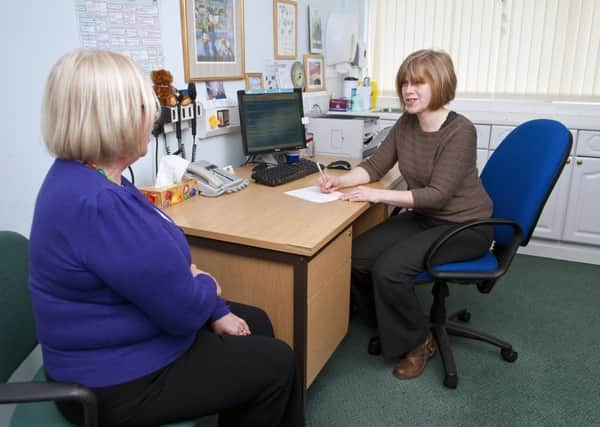Community link key to wellbeing


GP PRACTICES often mark the beginning of a person’s journey towards wider NHS services, and yet it isn’t always a medical problem that brings them to see their GP. A new programme funded by the Scottish Government aims to explore whether GP practice teams can support people to live well through using their local community resources, for example, befriending organisations and hobby clubs. It is being developed as a partnership between Alliance and general practitioners at the Deep End – a group of GP practices which serve the 100 most socio-economically deprived areas in Scotland.
There is a complex relationship between areas of socio-economic deprivation and the health of those who live in these areas. People who live in socio-economically deprived areas are more likely to develop long-term health conditions and to experience greater complications as a result of these conditions.
Advertisement
Hide AdAdvertisement
Hide AdJust as financial poverty can increase the risk of poor health, poor health can cause, or worsen the effects of, financial poverty.
Therefore, the current programme of welfare reform risks contributing to the poor health and wellbeing already experienced by many people who live in areas of deprivation and thus perpetrating an increase in health inequalities.
The terms “health” and “wellbeing” are often used synonymously, but if we consider them independently of each other then we might start to identify additional sources of support that are available in people’s communities.
Take Michelle for example. Michelle is a keen cook and enjoys hosting dinner parties for her friends, but she is at risk of becoming socially isolated. She lives with multiple sclerosis (MS) and after her husband died last year she began to experience depression and anxiety. Michelle’s MS is being managed well with support from a team of health care professionals, including her GP and her local neurological outpatients clinic. This staff team provides Michelle with knowledge regarding her condition and the associated symptoms. They discuss medication options with her and prescribe drugs to help manage her bladder weakness, fully explaining side-effects and alternative options. They provide advice on how Michelle can use self-management strategies to manage her condition.
These interventions are addressing Michelle’s health, but is the same team best placed to support her wellbeing? Health professionals are becoming increasingly skilled at offering a holistic assessment of a person’s health and the vast majority are aware of the social context of illness. However, the ever-increasing time pressures in the NHS present barriers to going a step further and finding out what really matters to the person in their life as a whole and supporting them to regain their independence and live life to the full.
The Alliance brings together around 400 organisations to ensure that the expertise of the third sector is influential in shaping policy and practice. Many of these member organisations pre-date the NHS and there is a wealth of experience that exists outside of the NHS, but community resources are often not considered when people think about support. In Michelle’s case there are many organisations that can help and the Links Worker Programme aims to help people access them.
A new specialist role, the Community Links Practitioner, will join the practice team. They will enable the entire team to identify local resources that can best support people to live well. They will also be on hand to spend time with people on a one-to-one basis. For some people this will involve a quick discussion about what resources are available in the area, for others it may involve spending more time analysing the barriers that they face in accessing support and enabling them to overcome these.
Community resources could help Michelle to build up her resilience so that she’s able to deal with the death of her husband.
Advertisement
Hide AdAdvertisement
Hide AdThey could spend time with Michelle and help her to identify the cause of her depression and anxiety and then enable Michelle to address that cause. The health professionals Michelle is in contact with will continue to help her to manage her condition, but the friends that she’ll make through accessing the cooking classes in her local area, the discovery of new interests, and her increased self-confidence, will all help her to live well.
• Mark Charlton is Links Worker Programme Manager with Health and Social Care Alliance Scotland (the Alliance)